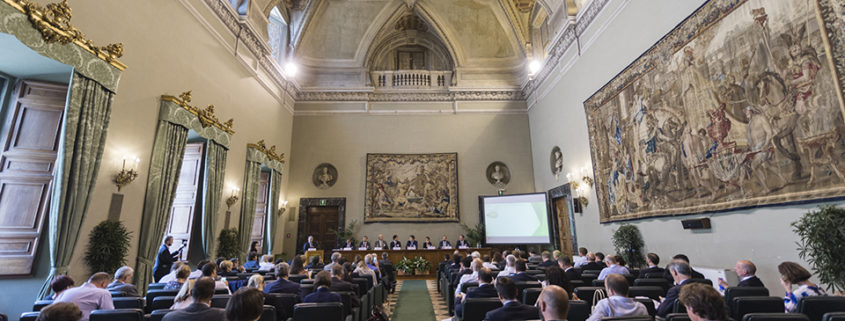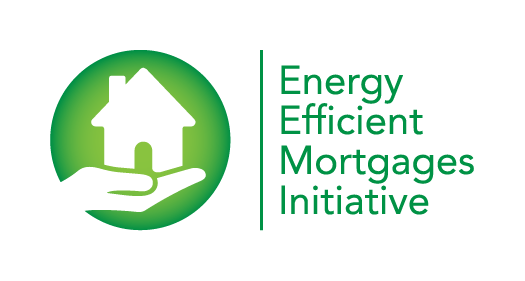
Stakeholder Meeting & Kick-off of the Energy efficient Mortgages Action Plan (EeMAP)

Stakeholder Meeting & Kick-off of the Energy efficient Mortgages Action Plan (EeMAP)
The Energy efficient Mortgages Action Plan (EeMAP) Initiative is being presented at a Kick-Off Stakeholder Meeting with over 100 participants and panellists, representing a cross sector of key market players such as European and international investors, issuers, lenders, property valuers, academics, energy suppliers, buildings experts and SMEs.
Together with the European Parliament, the European Commission and local authorities, these market participants will discuss the potential to channel private capital into energy efficiency investments, supporting EU property owners in the renovation of their residential and commercial properties and helping the EU institutions to bridge the investment gap to deliver on its energy savings targets. The designing of common best practices for energy efficient mortgages at European level will free up cross border private sector capital, generating significant fiscal relief for Member States.
With more than 210 million units (equal to 89%) of the EU´s residential building stock, for example, having been built before the year 2001, substantial efforts are required to channel private capital into bringing energy inefficient homes in line with new energy standards. From a savings perspective, a renovated house that moves from an ‘E’ to a ‘B’ grade in its energy performance certificate (EPC) will save a family an estimated EUR 24,000 over 30 years, according to an analysis of 365,000 house sales in Denmark last year.
Recent market research conducted by the EMF-ECBC reveals a strong willingness among financial institutions to enter the energy efficiency finance market.
The EeMAP Initiative is market-led and first of its kind, and aims at the design and delivery of an “energy efficient mortgage”, intended to incentivise the acquisition of energy efficient properties or the improvement of the energy efficiency of existing properties by way of preferential financing conditions linked to the mortgage.
At the heart of the Initiative is the assumption that energy efficiency has a risk mitigation effect for banks as a result of its impact on a borrower’s ability to service their loan and on the value of the property. This means that energy efficient mortgages will represent a lower risk on the balance sheet of banks and could, therefore, qualify for a better capital treatment. Lower capital requirements deliver a strong incentive for banks to enter the market and, as a result, drive a broader incentive chain, in which all stakeholders, including EU citizens, issuers, investors and society as a whole, derive a concrete benefit.
More broadly, the EeMAP Initiative delivers the following outcomes:
- Energy Efficiency: The EeMAP Initiative fits well within the European Commission’s own framework for climate and energy policies, which aims to encourage investments and boost private finance for EE investments/buildings. Particularly it is worth highlighting that to reach the 20% energy saving target by 2020, the EE Directive’s Article 4 includes a requirement for Member States to establish and periodically update “a long-term strategy for mobilising investment in the renovation of the national stock of residential and commercial buildings”.
- Jobs & Growth: The EeMAP boosts private investment in energy efficiency improvements, largely through retrofitting, which will in turn boost SME activity in the retrofitting sector, thereby contributing to the European Commission’s growth and jobs agenda.
- Financial Stability: This pan-European market-led Project will trigger market due diligence for borrowers, issuers and investors, reduce probability of borrower default, facilitate de-risking of banks’ balance sheets and management of non-performing loans, as well as enhance transparency and pricing in the market by adding a green factor to real estate.
Luca Bertalot, EeMAP Coordinator & EMF-ECBC Secretary General, said: “In the context of the European Commission’s Capital Markets Union Mid-Term Review published yesterday, the EeMAP Initiative represents a concrete step towards a clear cross-sectoral roadmap for the private financing of energy efficiency and, as such, a strong, market response to the challenge presented by climate change, underlining the foresight and proactivity of the stakeholders involved. The Initiative will encourage the energy efficient renovation of the EU’s building stock, in support of the EU’s ambitious energy savings targets and its commitment to the COP 21 Agreement and is therefore of strategic importance from an environmental, financial, and economic perspective.”
For more information, please contact: cceccarelli@hypo.org
Additional Details
Sitemap
Copyright © Energy Efficient Mortgages Initiative


The project DeliverEEM has received funding from the European Union’s LIFE 2023 programme under grant agreement No.101167431. The EeMAP, EeDaPP, EeMMIP projects have received funding from the European Union’s Horizon 2020 research and innovation programme under grant agreements No. 746205, No. 784979 and No. 894117 respectively
Privacy Overview
| Cookie | Duration | Description |
|---|---|---|
| cookielawinfo-checkbox-analytics | 11 months | This cookie is set by GDPR Cookie Consent plugin. The cookie is used to store the user consent for the cookies in the category "Analytics". |
| cookielawinfo-checkbox-functional | 11 months | The cookie is set by GDPR cookie consent to record the user consent for the cookies in the category "Functional". |
| cookielawinfo-checkbox-necessary | 11 months | This cookie is set by GDPR Cookie Consent plugin. The cookies is used to store the user consent for the cookies in the category "Necessary". |
| cookielawinfo-checkbox-others | 11 months | This cookie is set by GDPR Cookie Consent plugin. The cookie is used to store the user consent for the cookies in the category "Other. |
| cookielawinfo-checkbox-performance | 11 months | This cookie is set by GDPR Cookie Consent plugin. The cookie is used to store the user consent for the cookies in the category "Performance". |
| viewed_cookie_policy | 11 months | The cookie is set by the GDPR Cookie Consent plugin and is used to store whether or not user has consented to the use of cookies. It does not store any personal data. |
